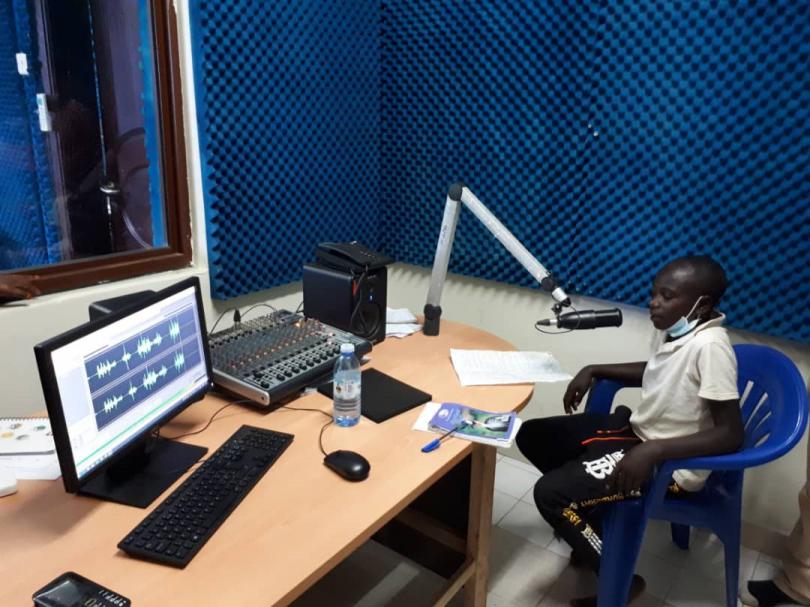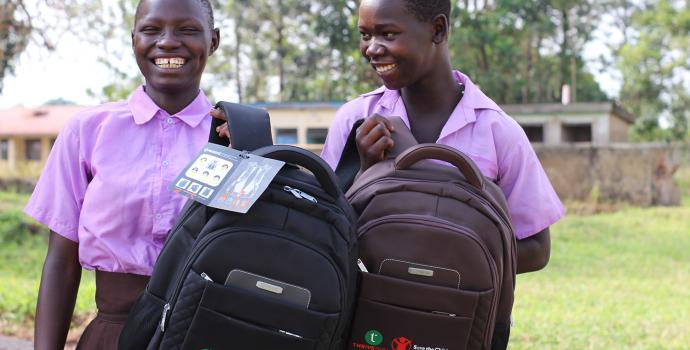Risks to children rise during the Covid-19 outbreak in Uganda
Although children aren’t considered most at risk of contracting Covid-19, they are among the most vulnerable to the ‘secondary’ social and economic impacts.
These impacts could affect children for the rest of their lives.
In Uganda the Government acted quickly to put in place ‘lockdown’ measures to mitigate the spread of the outbreak. These have had commendable impact, but they also exacerbate other risks to children which need to be addressed.
From violence and sexual abuse, to child labour and child marriage, we are seeing a significant increase in protection risks for children, adolescents and youth during the Covid-19 outbreak so far. And we expect these to worsen as the situation goes on.
These are outlined in a new briefing paper produced by the Joining Forces coalition – an alliance of six of the world’s leading child rights organisations: ChildFund, Plan International, Save the Children, SOS Children’s Villages, Terre des Hommes and World Vision.
Download the briefing paper: “Keeping children safe in Uganda’s Covid-19 response”
The paper outlines the situation facing many children across Uganda.
1. Children have less access to support and services
Schools - which normally provide a vital protection role as well as education - are closed, along with other child protection services such as Child Friendly Spaces; and restrictions on movement have limited the reach of case workers and protection staff. It is now harder than ever for children to report and get a response to violence, abuse and other protection issues – police are redeployed to enforce curfews and movement restrictions, prosecutions are delayed, and the national child helpline is overwhelmed. Some children and pregnant women have died as they have been unable to access healthcare due to transport restrictions.
2. A rise in poverty is pushing children into danger
Poor families are being pushed deeper into poverty as jobs and services have shut down. Many children are now surviving on just one meal a day or less.
Children are increasingly forced into hazardous and exploitative work to support their families. In one survey, 56% of respondents reported an increase in children working since lockdown began. In many parts of the country there has been an increase in girls drawn into commercial sexual exploitation – trading sex for money, food and even sanitary towels. Other children are selling alcohol or doing manual labour to try and make ends meet. In Karamoja girls are increasingly going to work in gold mines and boys are spending days looking after cattle.
We are also seeing an increase in child marriage, as adolescent girls are being married in exchange for dowry or bride price – especially in the north and northeast where rates of child marriage are already very high.
3. An increase in violence, abuse and stress
Many children are scared at home. One assessment during lockdown estimates that 80% of parents have used violence to restrain children from straying too far from the home, including spanking and slapping. In refugee-hosting districts, 60% of people said they have observed an increase in acts of sexual violence against children by peers, caregivers and community members
The uncertainty and prolonged periods confined to small homes is leading to an increasingly stressful environment, and many parents say they are afraid their children will become stressed or depressed. Our child protection teams have already witnessed an increase in substance abuse among adolescents turning to alcohol and drugs to try and cope in this stressful time. The impact of this will potentially last long after the lockdown ends.
4. Many children don’t have the information they need
There is a lot of information being sent to the public, but most of it is not age-appropriate and children do not have many opportunities to ask questions and receive assurance. Children with special needs and disabilities are often left out. Many of the most vulnerable children cannot access much of the information that is out there. For example, just 6.6% of rural households have internet access and even radio is limited in some rural areas and refugee settlements.
The way forward
Protecting children at this time is not just about protecting them from the virus, but also protecting them from violence, abuse and exploitation. Together we are calling on the Government, international donors and other key actors in the response to make child protection a priority. They can do this by
- ensuring child protection and mental health activities are adequately funded and incorporated into all response plans, and acknowledging that these activities are essential and lifesaving
- disseminating child-friendly information through creative materials
- taking children's views and opinions into account
- enforcing laws and making sure that all cases of violence against children and domestic violence are prosecuted
- strengthening child protection structures and reporting systems, for example by investing in the national child helpline
- expanding social protection to make sure that vulnerable children have food and support





